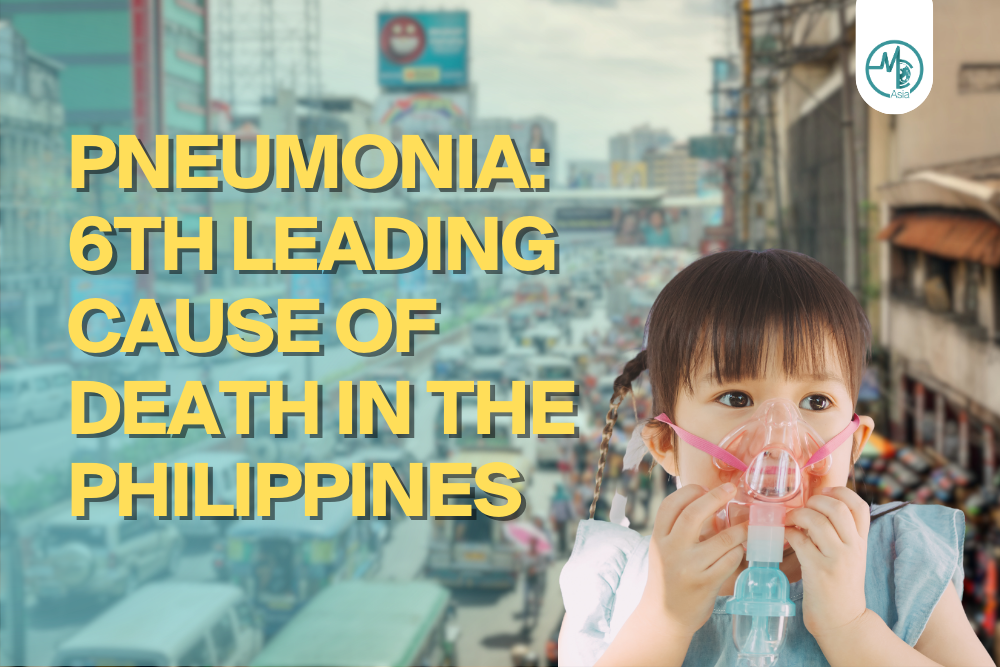Pneumonia is currently ranked as the sixth leading cause of death in the country. These alarming statistics came from the Philippine Statistics Authority (PSA) for 2022.
In a recent discussion, experts underscored the critical importance of vaccination as a proactive measure to reduce the risk of contracting pneumonia. Pneumonia continues to be a significant cause of mortality, particularly among older adults and individuals with chronic diseases.
What is Pneumonia?
Pneumonia is a respiratory infection affecting either one or both lungs, resulting from bacterial, viral, or fungal agents.
The symptoms of pneumonia closely resemble those of influenza (commonly known as the flu). Patients may experience fever, muscle and joint pains, an itchy or sore throat, cough, colds, headache, and chills. Both the flu and pneumonia can be viral in origin. However, pneumonia can also be instigated by causative microorganisms such as fungi or bacteria. Given the similarity in symptoms between the two, seeking medical advice is essential. A comprehensive evaluation, including blood tests or chest X-rays, is recommended to determine the appropriate course of action.
The Importance of Immunisation
Experts emphasise that immunisation is a key strategy to protect individuals at higher risk of developing pneumonia. This includes infants under two years old, adults over 65, those with weakened immune systems, and individuals with chronic health conditions affecting the heart and lungs. Vaccines, as part of the National Immunization Program led by the Department of Health (DOH), are readily available for free in barangay or LGU health centres across the Philippines.
Dr. Lulu Bravo, the executive director of the Philippine Foundation for Vaccination, highlighted the urgent need for vaccination. This is especially important considering the potential complications that may arise for individuals with chronic diseases. Dr. Bravo pointed out that those suffering from flu or pneumonia could be at risk of heart attacks, strokes, and kidney failure. Importantly, these severe outcomes may not be directly attributed to the respiratory infection but could be recorded as strokes or heart attacks, masking the underlying vaccine-preventable disease.
Preventing Complications
The discussion brought attention to the hidden dangers associated with pneumonia, particularly when contracted by individuals with existing health conditions. Dr Bravo explained that complications such as heart attacks and strokes could be triggered by respiratory infections like pneumonia, making vaccination a crucial preventive measure.
Accessible Vaccines
One of the positive aspects experts emphasise is the accessibility of vaccines through the National Immunization Program. The initiative ensures that vaccines are free in local health centres, making them easily accessible to communities nationwide. This approach aligns with the broader goal of promoting public health and reducing the incidence of preventable diseases.
Conclusion
As pneumonia remains a serious threat, especially for vulnerable populations, experts stress the significance of widespread vaccination. The National Immunization Program provides a crucial avenue for individuals to protect themselves from pneumonia. Consequently, it will reduce the overall burden of respiratory infections and their potentially severe complications. Through informed vaccination strategies, the Philippines can make significant strides in safeguarding the health of its citizens and preventing the hidden dangers associated with pneumonia.













